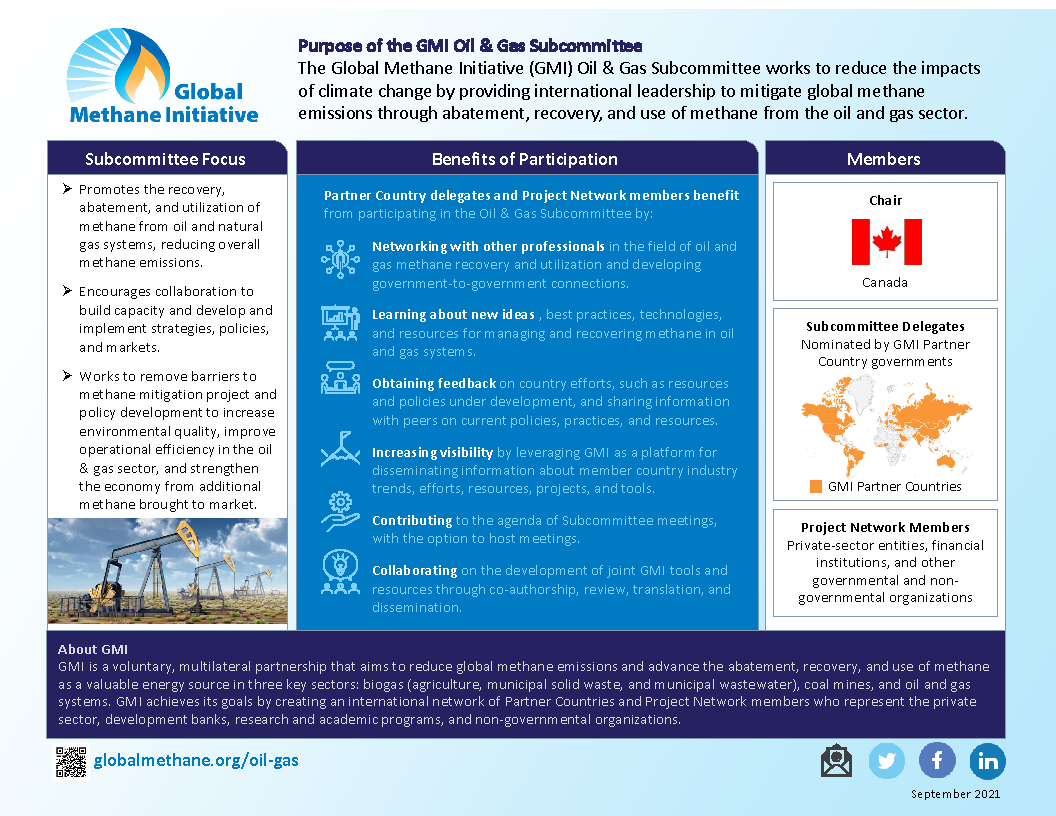Featured Resources
For a complete list of available oil & gas resources, including technical documents, presentations, and tools, please visit the resources page.
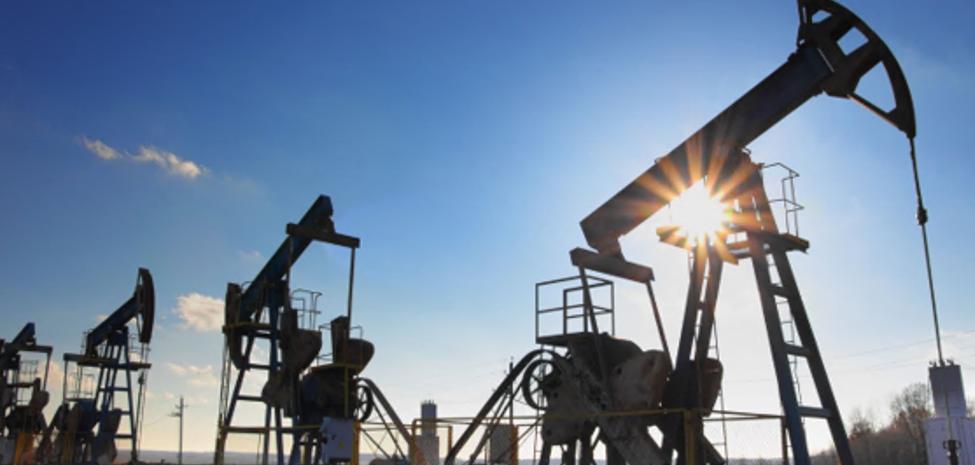
Smart Plus Tool (2025)
The Simplified Methane Assessment and Reporting Tool, or SMART Plus tool, is an innovative, easy-to-use tool that helps improve the accuracy of estimated methane emissions (and other pollutants such as carbon dioxide) from oil & gas operations, both at the facility level and at the national level.
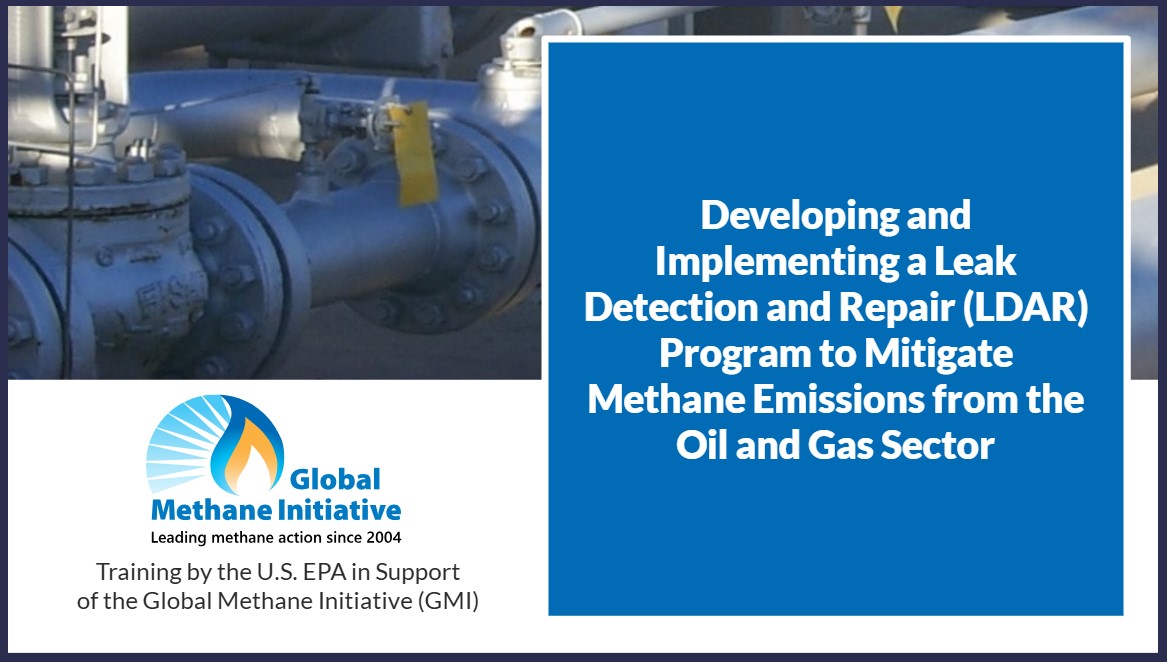
Developing and Implementing a Leak Detection and Repair (LDAR) Program to Mitigate Methane Emissions from the Oil and Gas Sector (2025)
This training, prepared by the U.S. Environmental Protection Agency (EPA) in support of GMI, explains the concept, objectives, systematic approach, challenges and benefits of a non-regulatory leak detection and repair (LDAR) program for managing methane emissions from equipment leaks at oil and natural gas facilities. In addition, it provides specific guidance on designing, implementing, and managing the LDAR program.

Methane Emissions from the Oil and Gas Industry
This training provides an overview of the oil and natural gas industry, from the main types of deposits and wells to the different segments within the sector. This training also discusses some of the key methane emission sources in the oil and gas industry, available technologies to reduce emissions, and the positive outcomes of capturing and using methane. The training was developed by the U.S. Environmental Protection Agency (U.S. EPA) in support of voluntary activities to reduce methane emissions under the U.S. EPA’s Natural Gas STAR Program and the Global Methane Initiative (GMI).
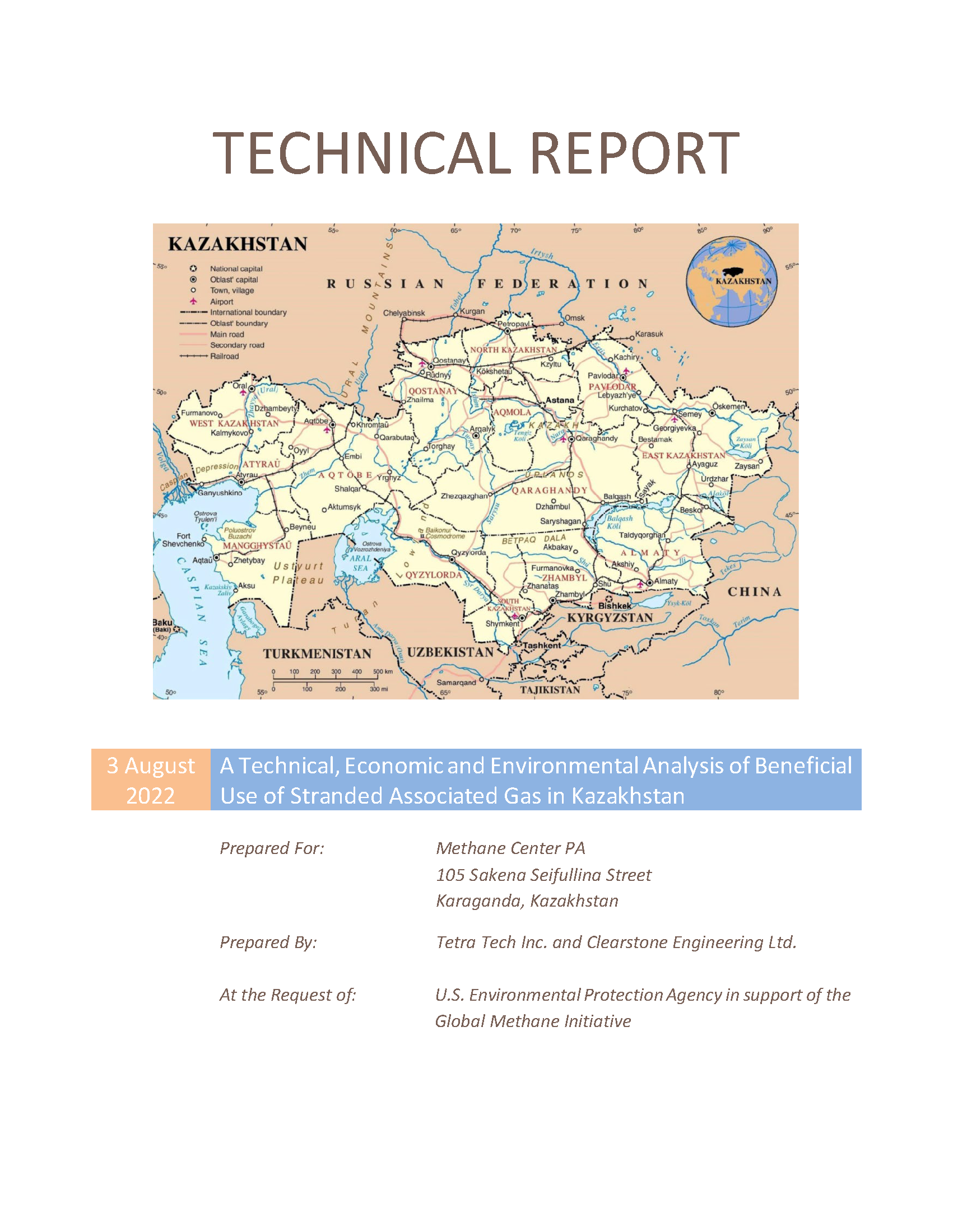
A Technical, Economic and Environmental Analysis of Beneficial Use of Stranded Associated Gas in Kazakhstan (2023)
GMI, with support from the U.S. Environmental Protection Agency (EPA), worked with a partner in Kazakhstan to obtain data on associated gas availability and content to assess the opportunity to mitigate methane and reduce flaring at the Mangystau oilfield in southwest Kazakhstan. The prefeasibility study investigated the potential to monetize the stranded associated gas in the Mangystau oilfield by utilizing modular, small-scale processing technologies to produce marketable liquid hydrocarbon commodities such as methanol, syn-diesel, oil, or others. The report includes the results of the prefeasibility assessment of the range of practical mitigation options and recommendations for an optimum solution.

Identifying and Evaluating Opportunities for Greenhouse Gas Mitigation & Operational Efficiency Improvement at Oil and Gas Facilities (2020)
This document presents introductory guidance on a pragmatic, integrated approach to identifying, evaluating, and advancing cost-effective, high-impact opportunities to manage greenhouse gas (GHG) emissions and energy use at oil and natural gas facilities. The focus is primarily on key sources of short-lived climate pollutants (SLCP). The primary audience for this document includes company managers, facility operators, and relevant service providers outside of North America (particularly where other regulatory guidance for GHG reductions and energy management may not be available).
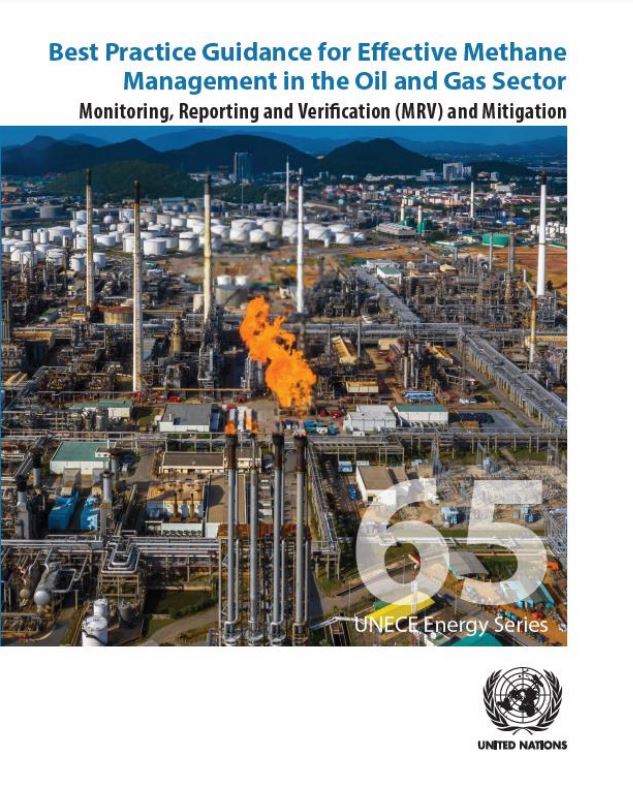
Best Practice Guidance for Effective Methane Management in the Oil and Gas Sector: Monitoring, Reporting and Verification (MRV) and Mitigation (2019)
This document is intended to be a resource for facility owners, operators and government policymakers. The purpose of this document is to provide information about cost-effective measures for detecting and mitigating methane emissions along the full oil and gas value chain at the company- and national-level. Guidance for developing and implementing practices for monitoring, reporting and verifying (MRV) methane emissions is also provided.
